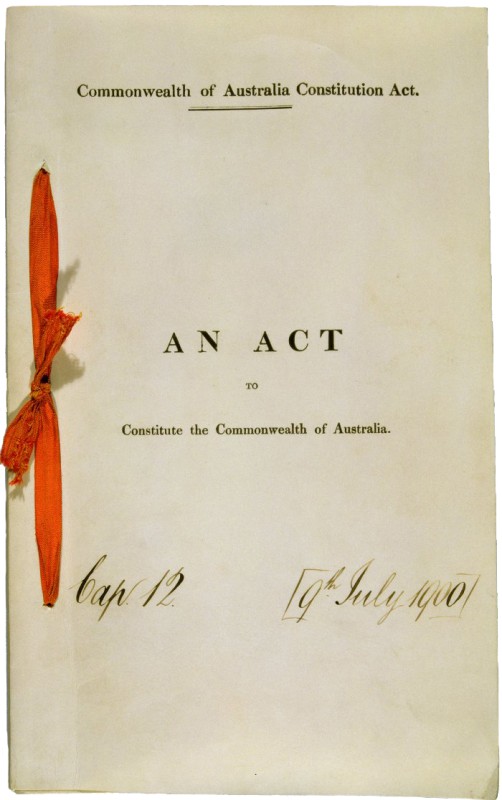Could you help me find 2 examples each for concurrent, residual and exclusive powers and which section of the constitution they relate to?

Commonwealth of Australia Constitution Act, 1900: Original Public Record Copy (1900).
Parliament House Art Collection, Art Services Parliament House
Commonwealth of Australia Constitution Act, 1900: Original Public Record Copy (1900).

Parliament House Art Collection, Art Services Parliament House
Description
This image shows the front page of the original public record copy of the Commonwealth of Australia Constitution Act 1900. There is a a red ribbon tied in a bow on the left hand side of the document. The paper looks faded from age.
Permission for publication must be sought from Parliament House Art Collection. Contact DPS Art Services, phone: 02 62775034 or 02 62775123
Thanks for the complex question Trudy! When the Australian Constitution came into effect of 1 January 1901, the power of the states to make laws was broken up so that some powers were:
- transferred to the Commonwealth (Australian Parliament) – exclusive powers of the Commonwealth
- shared by the Commonwealth and the states – concurrent powers
- retained by the states – residual powers.
Areas in which only the Commonwealth can make laws are called exclusive powers. Section 51 of the Constitution contains a long list of areas in which the Commonwealth can make laws. For some of these (defence, foreign affairs, overseas trade etc) the Commonwealth has the exclusive – sole – power to make laws. Others (education, health etc) are shared with the states. Sections 52, 86 and 90 (customs), and 122 (territories) also contain exclusive powers of the Commonwealth.
Concurrent powers refers to areas in which both the Commonwealth and states can make laws. Section 109 of the Constitution says that where a state law conflicts with a federal law, the state law is cancelled.
Any area not covered in the Constitution is considered to be within the states' powers to make laws and is called a residual power. These are the powers that were not transferred to the Commonwealth at Federation. Residual powers include urban planning and civil law.